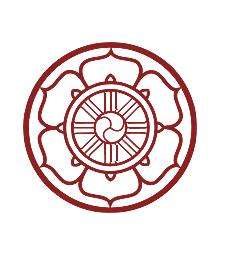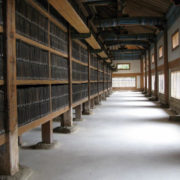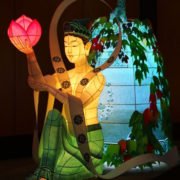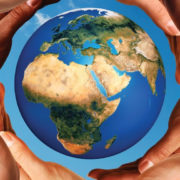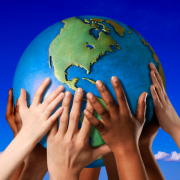The question seems to present an impenetrable barrier. How can you escape being burned when everything becomes conflagration? Is there something which cannot be burned? In another kongan story Zen Master Man Gong gives us a hint, saying: “Even if this world explodes, if everyone has one pure and clear thing, it will never disappear. That thing sometimes dreams, sometimes is awake. Then I ask you, not dreaming, not awake, where is it?”
Buddha left us with the same question and didn’t try to console us in a conventional way. When he was about to enter nirvana, he gave his students simple but uncompromising teaching: ” Everything is impermanent. Be persistent and keep trying.” At this point clarity appears: despite the transience of everything, keeping the flame of trying mind burning bright is the most important thing!
The Dharma which he shared with us was, and still is, the challenge for life and death. It is definitely not another gadget offered on the altar of our small limited ego which is powered mostly by desire, consumption, and a fragile, as we now see, sense of safety and comfort. The present crisis shows us that it’s sufficient to deprive us of our favorite toys and break up the party in an unpleasant way to push us into panic and undermine how we try to make sense of everything.
Fear itself is not good, not bad and very often becomes our ally by sharpening our attention when our and other people’s life and health is endangered. But when it gets out of control and totally determines our relationship with the world, it easily turns from guest to thief and steals the originally free from clinging and unlimited space of our original mind. In fact, fear is a component of our conditioned mind and, together with a few other emotional and mental streams, very easily becomes a hindrance. It gets in the way of original nonduality, separating us from reality and our true nature; covering this one clear thing to which Zen Master Man Gong was pointing, and to which Budda devoted his life.
One of the most important texts supporting Zen practice is the Heart Sutra and it contains a very interesting and invigorating message: “ The Bodhisattva depends on prajnaparamita and the mind is no hindrance. Without any hindrance no fears exist.” In Zen we say: mind is buddha, and as such is not a hindrance for sure, but our guide and teacher. Nevertheless, we must keep reminding it, waking it up to its mirror-like nature of prajna, free from fear and other hindrances.
So what can we do? My advice is simple: let’s hide under the path, let’s visit our meditation cushion as often as we can, let’s cultivate connection with our true nature using the alarm clock of formal training. If we investigate our mind with determination and sincerely ask “What is it?” then the curtains of delusion fall away to reveal the vivid and luminous silence permeating body and mind, where gain and loss, sickness and health, life and death are only temporary guests in our original home. This is the source of our true spiritual power.
Let’s use this power to take care of others. Especially nowadays the need for active compassion is unlimited and there is plenty of work for everyone. Practicing good and helping each other always makes both sides happy.
Because everything is our teacher, coronavirus is no exception. It is a very dangerous and difficult teacher, but maybe because of this the best one. What we understand and what will be the outcome of this confrontation will depend on us. Since everything is impermanent, including the virus, this interview, forcefully imposed by it on humankind will reach its end too, one day. Will we return to our dreams or awakened to the marrow of our being will we create a world of wisdom, compassion and love?
Our Threefold Refuge of Buddha, Dharma and Sangha are not empty words but living aid which is always reaching out its hand to meet yours. When this meeting occurs you get powerful support. You discover that, submerged in prajnaparamita, free from fear and all obstacles, bodhisattva is YOU!
